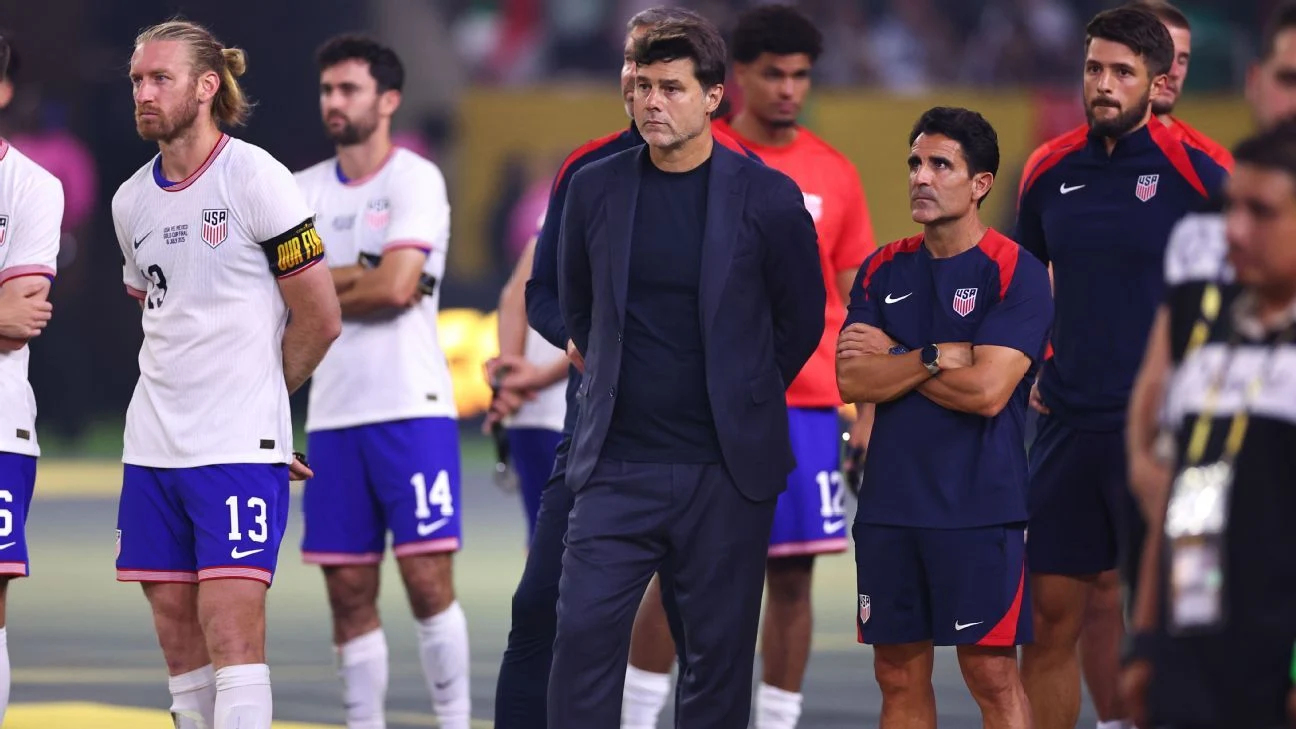The U.S. Men’s National Team may have fallen short of lifting the Gold Cup trophy, but their campaign delivered something far more telling—a glimpse into the tactical transformation under Mauricio Pochettino. Spanish football analyst Graham Hunter commended the team’s evolution, describing it as a crucial milestone in the pursuit of a more competitive international presence.
The Gold Cup served as a live testing ground for the team’s adoption of Pochettino’s high-demand system. With matches against top CONCACAF opposition, the tournament offered a rare opportunity to stress-test principles like intensity, spatial discipline, and controlled aggression. While the trophy slipped away, the team left an impression with its cohesive structure and persistent drive.
A defining hallmark of Pochettino’s philosophy is high pressing and rapid transitions, combined with the technical ability to retain possession under pressure. Throughout the tournament, the USMNT exhibited these traits with growing consistency—pressuring opponents in advanced areas, recovering quickly after turnovers, and sustaining attacking tempo. This marked a clear shift toward a more proactive and intelligent brand of football.
Christian Pulisic emerged as a central figure within this evolving system. The Chelsea winger brought more than just pace—his decision-making, positioning, and defensive recoveries aligned seamlessly with the team’s new direction. His performances reflected both personal growth and a deeper understanding of tactical responsibility, cementing his role as a leader on and off the ball.
Despite clear improvements, the team’s defensive vulnerabilities were evident, particularly during the semifinal against Qatar. Miscommunication and erratic positioning created dangerous openings, revealing gaps that require focused correction. These were less about effort and more about tactical naivety—issues that can be addressed with targeted drills and match experience.
Finishing remains a persistent challenge. The USMNT successfully created scoring chances through coordinated pressing and quick build-up play, but often lacked the precision to convert those moments into goals. The absence of a clinical forward continues to limit their ability to capitalize on momentum, making the search for a reliable striker an ongoing priority.
Set-piece defending emerged as another soft spot, especially in knockout-stage scenarios. Qatar exploited this weakness with smart delivery and coordinated runs, exposing poor marking and inconsistent organization. Refining dead-ball defense will be essential to eliminating unnecessary risks in high-pressure matches.
More than tactics and results, the most notable shift during the Gold Cup was psychological. The USMNT played with a confidence and aggression rarely seen in past tournaments. Instead of retreating in the face of pressure, the squad embraced the challenge—reflecting a group increasingly molded by Pochettino’s signature intensity, self-belief, and structured ambition.

